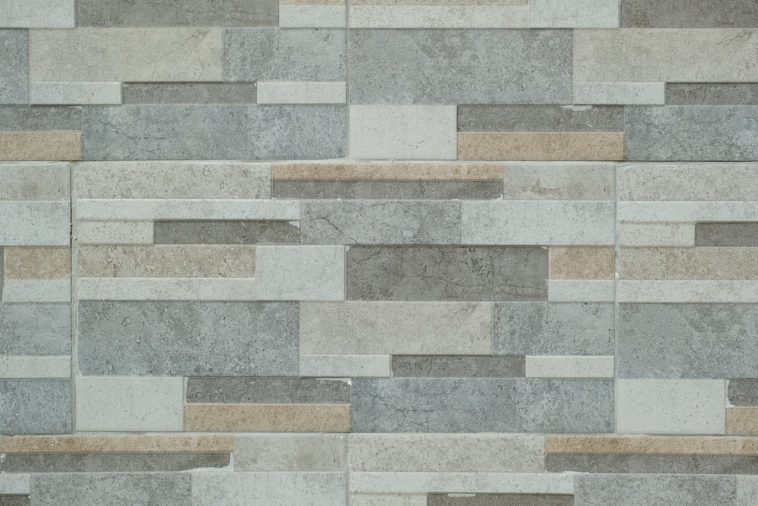I’ve spent over six years building and scaling online businesses, from affiliate marketing to eCommerce. But some of the most resilient and profitable ventures I’ve seen are rooted in tangible, essential goods.
A tile business in Nigeria is a perfect example. It’s not a fleeting trend; it’s built on the bedrock of a constant need—housing, renovation, and construction.
Right now, Nigeria’s construction and real estate sectors are experiencing significant growth. Every new building, every renovation, needs tiles.
This demand creates a massive opportunity for a savvy entrepreneur to build a stable, cash-flow positive business.
It merges the timeless principles of retail with the potential for serious growth. Let me walk you through exactly how to do it, step-by-step, without the fluff.
Step 1: Understand Your Market and Find Your Niche
Before you spend a naira, you need to understand what you’re selling and to whom. The “tile business” is broad. Are you targeting luxury homeowners in Lekki, contractors building estates in Abuja, or the everyday DIY renovator in Aba?
Visit construction sites, talk to builders, and walk through existing tile shops. Notice what’s selling. Is it porcelain, ceramic, or the popular vinyl tiles?
Your niche could be based on tile type, customer type, or even a specific style like Italian marble looks or large-format tiles. Starting with a focus is far better than trying to sell everything to everyone.
Step 2: Craft a Simple Business Plan
You don’t need a 50-page document. You need a clear plan that answers key questions. What is your startup budget? Who are your target customers? How will you source your tiles? What will you name your business? How will you price for profit?
This plan is your roadmap. It forces you to think through costs like registration, initial stock, shop rent, and logistics. It’s the difference between guessing and knowing your numbers. A simple one-page plan is enough to start.
Step 3: Handle Legal Registration and Requirements
Register your business with the Corporate Affairs Commission (CAC). For a start, a Business Name registration is often sufficient and cost-effective. It gives your venture legitimacy, which is crucial for dealing with suppliers and serious clients.
You’ll also need to open a dedicated business bank account. Keep your business finances separate from your personal money from day one. Trust me, this habit is non-negotiable for tracking profit and scaling later.
Step 4: Secure Your Supply Chain
This is the heart of your business. Your success hinges on getting quality tiles at good prices. Major sources include local manufacturers (like ROCA and MICO), distributors in hubs like Iddo in Lagos or Abuja, and for higher capital, direct importers from China, Spain, or Turkey.
Start by building relationships with local distributors. Visit them, understand their pricing, minimum order quantities, and return policies for damaged goods. Your goal is to find reliable suppliers who won’t leave you stranded when you get a big order.
Step 5: Decide on Your Business Model
Will you have a physical showroom, operate from a warehouse, or start as a pure online marketer? Each has pros and cons.
A physical shop builds customer trust and allows for direct sales, but rent and setup costs are high. A warehouse model with a focus on supplying contractors is lower overhead.
Starting as an online marketer or agent—connecting clients to suppliers for a commission—requires minimal capital. I often advise starting with the model that fits your budget, with a plan to evolve.
Step 6: Price Your Tiles Strategically
Pricing is not just adding a markup. You must account for all costs: cost of goods, transportation, rent, staff, utilities, and a buffer for waste and negotiation. Visit competitors to see market prices.
A good rule is to aim for a profit margin of 30-50%, depending on the tile type and volume. Always be ready to explain why your tiles are worth the price—quality, durability, unique design.
Step 7: Master Marketing and Sales
You can have the best tiles, but without customers, you have a storage unit, not a business. Build a simple, clean website showcasing your products with clear contact information. Use Instagram and Facebook extensively. Post high-quality photos and videos of your tiles, installations, and satisfied customer projects.
Network with bricklayers, interior designers, and architects. They are your key influencers. Offer them a small commission for referrals. Consider offering free delivery for orders above a certain amount—it’s a powerful incentive.
Step 8: Provide Stellar Customer Service
In a competitive market, service is your biggest differentiator. Be knowledgeable. Advise customers on the right tile for their space, estimated quantities, and maintenance. Be transparent about stock availability and delivery timelines.
Follow up after a sale. A happy customer becomes a repeat customer and your best advertiser. Handle complaints gracefully. Your reputation is everything.
Step 9: Reinvest and Scale
Your first profits are not for a new car. They are fuel for your business. Reinvest in more stock, a better showroom, a vehicle for delivery, or targeted online ads.
As you grow, you can expand your product line to include adhesives, grouts, and tools. You might move into tile contracting, offering installation services. The opportunities compound as your brand gains trust.
Frequently Asked Questions
How much capital do I need to start?
You can start as an agent with almost no capital. For a small stock, a dedicated physical space, and initial running costs, a realistic range is between ₦500,000 to ₦2,000,000. It scales up from there based on your model and ambition.
Is the tile business profitable in Nigeria?
Yes, consistently. The demand is driven by continuous construction and renovation. Profitability depends entirely on your management—your sourcing, pricing, cost control, and marketing efficiency.
How do I handle competition from big dealers?
Don’t compete on price alone. Compete on service, specialization, and relationships. Big dealers can be impersonal.
You can be the responsive, reliable expert who remembers your customers’ names and follows up. Find a niche they ignore.
Can I run this alongside my 9-5 job?
It’s challenging but possible, especially if you start with the agent model or a small warehouse operation managed by a trusted attendant. The initial setup requires your full attention, but it can be systematized.
Building Something Concrete
Starting a tile business is about more than selling squares of ceramic. It’s about supplying the foundation for someone’s dream home, a new office, or a thriving shop. The business model is proven, and the demand is evergreen.
The steps I’ve outlined are the same ones I’d take if I were starting tomorrow. They are practical, tested, and designed to help you build a real, sustainable enterprise from the ground up. It requires grit, smart planning, and a willingness to learn about both tiles and people.
This path isn’t always easy, but the rewards—building a tangible asset, creating jobs, and securing your own financial future—are substantial. So, what’s the first space you imagine your tiles adorning?





GIPHY App Key not set. Please check settings